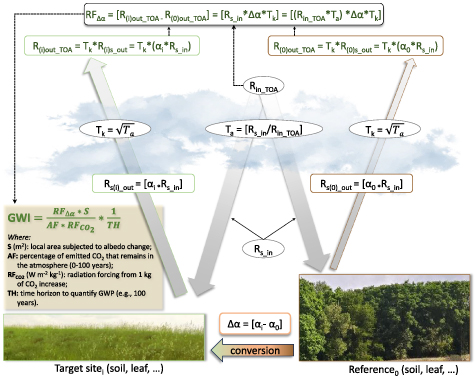
The Science
Albedo is a measurement of the sun’s energy reflected back into space. Dark surfaces like asphalt, which absorb light in the form of heat, have low albedo. Grass and trees reflect more light, and so have higher albedo. This study explored the impact of albedo on the Earth’s climate, particularly analyzing the shortcomings of existing albedo models by comparing them to observed data. Albedo data doesn’t often take into account variations in season and time of day, the researchers realized, and although the absorption of heat can directly impact the climate, there is no systematic way to calculate this impact.
The Impact
Human activities can change albedo and contribute to the overall warming of the planet. Researchers with the Great Lakes Bioenergy Research Center analyzed the contribution of albedo to global warming and emphasized the importance of models that accurately measure and calculate the effects of albedo in order to properly monetize the effects of various crops in a carbon trading market. By making albedo and its effect on climate a matter of economic policy, farmers would be encouraged to use more sustainable practices.
Summary
Huge swathes of land all across the globe are covered in crops, but the effects of albedo and of albedo on global warming has not been sufficiently analyzed in the regulation of carbon footprints. The authors propose several research priorities to grow this field of knowledge, including promoting a comprehensive global albedo database, developing regional networks of reference sites, enhancing current algorithms in remote sensing, and constructing a component that accounts for the global warming effects of albedo in the carbon trading market for landowners.
Funding
This research is based upon work supported by the Great Lakes Bioenergy Research Center (GLBRC), US Department of Energy, Office of Science, Office of Biological and Environmental Research; the NASA LCLUC Program; the NSF Long-term Ecological Research (LTER) Program at the Kellogg Biological Station; and by Michigan State University AgBioResearch. Funding for the AmeriFlux data portal was provided by the US Department of Energy Office of Science.